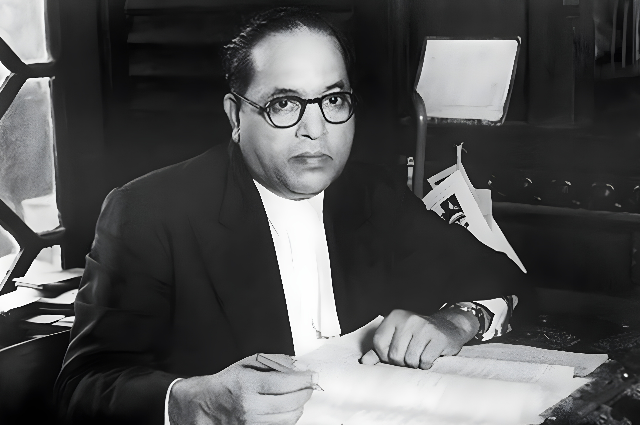
Source: Wikipedia
Dr. B R Ambedkar was an Indian philosopher, anthropologist, historian, politician, and economist who was the chief architect of the Indian Constitution. This social reformer even fought for the rights of women and primarily for the Dalit community by raising his voice against the Indian caste system. Ambedkar was born on 14 April 1891, and to pay homage to Ambedkar’s great contribution throughout his life, the 14th of April is celebrated as Dr. B R Ambedkar Remebrance Day. It was first celebrated in Pune on 14 April 1928, and since then, India also commemorated this day as an official public holiday.
On the auspicious occasion of Ambedkar Jayanti, people pay their homage to Ambedkar. It is even customary that the President, Prime Minister, and leaders of the Indian Government to pay homage to Dr. B R Ambedkar’s statue at the Parliament in New Delhi. This day is largely celebrated by his followers, especially Dalits, Adivasis, and many other communities who have been impacted by his work. The Ambedkar Jayanti holds a remarkable significance because it entices attention to the massive contribution of Ambedkar to the Indian constitution, women’s rights, and the rights of people affected by India’s caste-based bigotry.
India commemorates the work of Dr. B R Ambedkar for the upliftment of millions of people. Today, he is also celebrated by crores of his followers because he granted equal rights to all the citizens by drafting the Indian Constitution. Most people today are familiar with the work done by Ambedkar, and how he paved the way for countless social revolutions in the country. Yet, there are many interesting lesser-known facts about Ambedkar which are striking and powerful. And on the occasion the Dr. B R Ambedkar’s Remembrance Day, we present you with some facts regarding his inspiring life of outstanding achievements.
- Dr. B R Ambedkar came from a backward category in India, and after resisting all the atrocities of caste discrimination in those times, he became the first lawyer in his community. He also became the first Indian to get a Doctorate (Ph.D.) Degree in Economics from abroad.
- When Babasaheb Ambedkar was studying at the London School of Economics, he completed 8 years of studies in just 2 years 3 months, and to complete it he nearly studied 21 hours a day.
- While many bright students in his time attempted to accomplish but failed at the degree of 'Doctor All Science', Ambedkar became the first person in the world to receive this valuable degree of ‘Doctor All Science’ from the London School of Economics.
- Ambedkar was a master in 64 subjects. He knew multiple languages like Marathi, Hindi, Sanskrit, Pali, Gujarati, English, French, German and Persian.
- Based on a substantial global survey called 'The Makers of the Universe' a list of the top 100 humanist people of the 10,000 years was made by Oxford University, in which, the fourth name was Dr. Babasaheb Ambedkar.
- It is well known that the national flag of India was designed by Pingali Venkayya, but the credit for suggesting a place for ‘Ashok Chakra’ in the Indian Tricolour goes to Dr. Babasaheb Ambedkar.
- Ambedkar’s library Rajgirh consisted of more than 50000 books and it was one of the world’s largest private libraries.
- Ambedkar stood for several labour reforms in India. And he was the person who modified the working hours from 12 or 14 hours to 8 hours in a session of the Indian Labour Conference."
- The Reserve Bank of India was also conceptualized according to the guidelines of B R Ambedkar. In his book ‘The Problem of Rupee – Its Origin & its Solution’, Ambedkar has discussed different concerns and explanations of the demonetization in the present world, along with many other monetary issues.
. . .
Reference:
